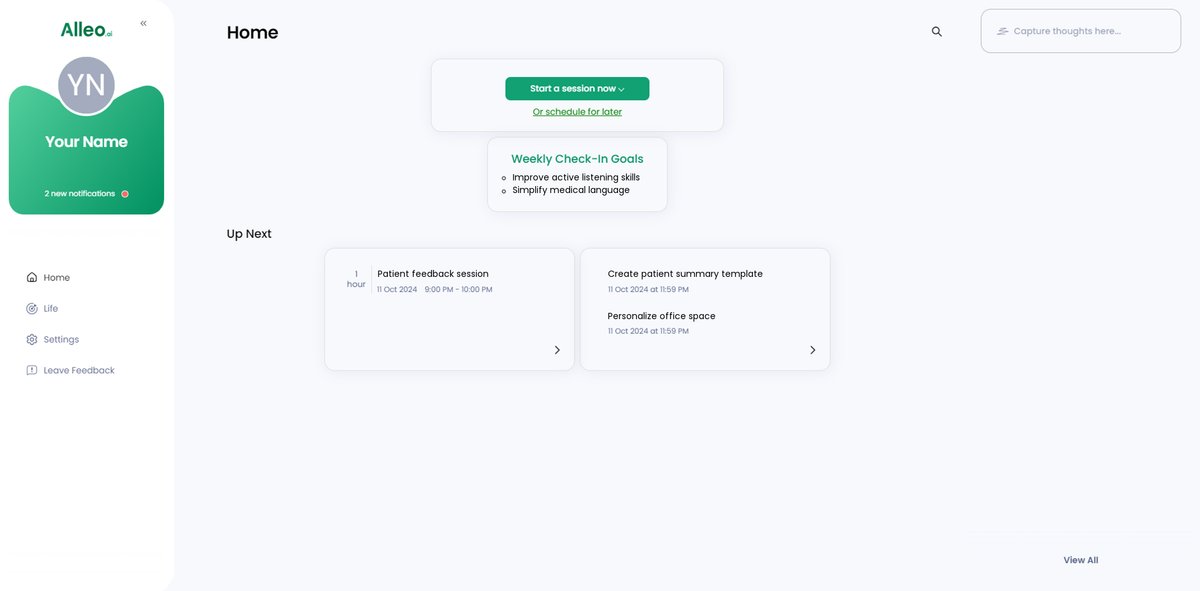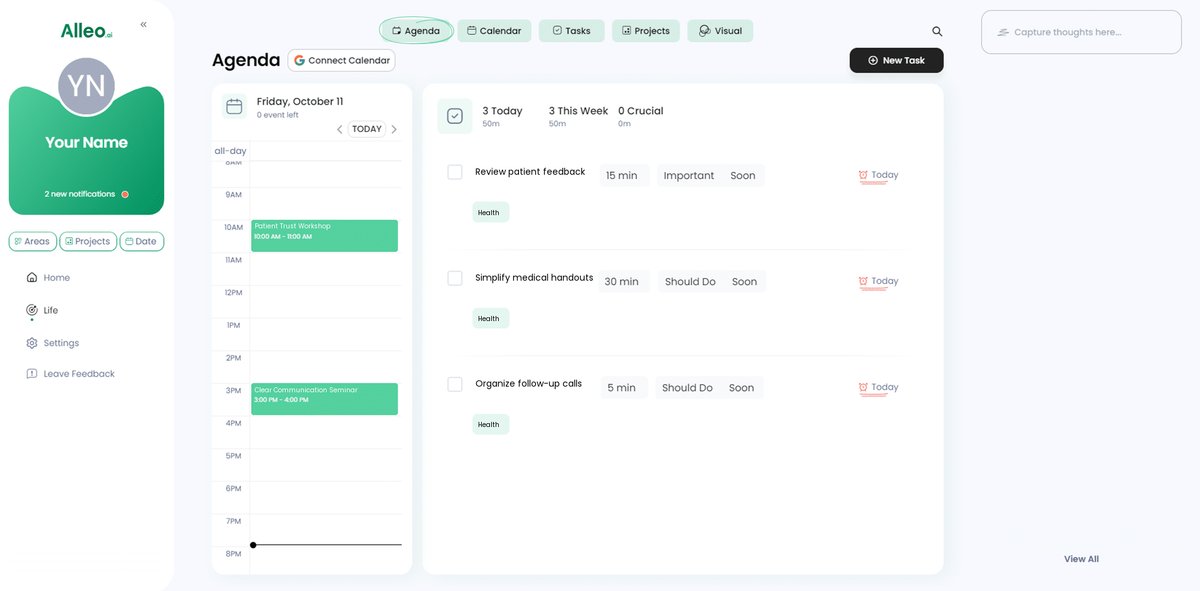The Ultimate Guide: How Healthcare Providers Can Build Trust with Patients
What if you could significantly improve patient outcomes just by enhancing your communication skills and building trust with patients?
As a life coach, I’ve helped many professionals navigate these challenges. In my experience assisting clients with patient interactions, I’ve seen the transformative power of trust and effective communication in healthcare.
In this article, you’ll discover actionable strategies to build trust with your patients. We’ll cover everything from active listening techniques for medical professionals to creating a welcoming environment, focusing on patient-centered care strategies.
Let’s dive in and explore how building rapport with patients can enhance your medical practice.

Understanding the Trust Deficit in Healthcare
Building trust with patients is crucial but often challenging. Many healthcare professionals struggle with this, leading to poor patient experiences and difficulties in establishing credibility as a healthcare provider.
I often hear from clients about the frustration they face when patients don’t trust them. This lack of trust can result in miscommunication and unsatisfactory health outcomes, highlighting the importance of effective communication in healthcare.
For instance, poor communication can cause patients to feel unheard, leading to decreased adherence to treatment plans. This ultimately affects their overall health and satisfaction, emphasizing the need for patient-centered care strategies and active listening techniques for medical professionals.
Addressing this trust deficit is vital. By doing so, you can transform patient interactions and ensure better outcomes through building rapport with patients and employing empathy in doctor-patient relationships.

Key Steps to Building Trust with Patients
Overcoming this challenge requires a few key steps. Here are the main areas to focus on to make progress in building trust with patients:
- Practice Active Listening and Empathetic Responses: Attend training sessions on active listening techniques for medical professionals and implement regular patient feedback sessions to improve empathy in doctor-patient relationships.
- Use Clear, Jargon-Free Language in Communication: Simplify terms and provide written summaries for patients, enhancing effective communication in healthcare.
- Create a Comfortable, Welcoming Environment: Personalize your space and ensure privacy during consultations, supporting patient-centered care strategies.
- Involve Patients in Shared Decision-Making: Use decision aids and encourage questions to promote patient education and informed decision-making.
- Demonstrate Competence and Explain Procedures: Stay updated and use patient testimonials to establish credibility as a healthcare provider.
- Maintain Consistency and Follow-Up in Care: Schedule regular follow-ups and provide continuous support, demonstrating transparency in medical practice while building rapport with patients.
Let’s dive in!
1: Practice active listening and empathetic responses
Practicing active listening and empathetic responses is crucial for building trust with patients and enhancing effective communication in healthcare.
Actionable Steps:
- Attend training sessions on active listening: Enhance your listening skills through workshops and courses focused on building rapport with patients.
- Implement regular patient feedback sessions: Schedule sessions to understand and address patient concerns, promoting patient-centered care strategies.
- Use reflective listening techniques: Show empathy in doctor-patient relationships and validate patient feelings by reflecting on their words.
Explanation:
These steps matter because they foster a deeper connection with your patients, making them feel heard and understood, which is essential for building trust with patients.
According to a study in AMN Healthcare, active listening is key to building rapport and improving health outcomes. By making these efforts, you align with current trends emphasizing patient-centered care and transparency in medical practice.
Key benefits of active listening include:
- Enhanced patient satisfaction
- Improved treatment adherence
- Stronger patient-provider relationships
Improving your listening skills can significantly enhance patient trust and satisfaction, contributing to establishing credibility as a healthcare provider.

2: Use clear, jargon-free language in communication
Using clear, jargon-free language in communication is essential to ensure patients fully understand their health conditions and treatment plans, which is a key aspect of building trust with patients.
Actionable Steps:
- Simplify medical terms: Explain complex procedures using everyday language to help patients grasp the information easily, enhancing patient-centered care strategies.
- Use visual aids and analogies: Incorporate visuals and relatable examples to clarify complex concepts, improving effective communication in healthcare.
- Provide written summaries: Give patients concise, written summaries of consultations to review at home, supporting patient education and informed decision-making.
Explanation:
These steps matter because they enhance patient understanding and engagement, crucial for building rapport with patients.
A study in the Journal of Patient Experience found that 91% of patients preferred doctors to avoid medical jargon. Clear communication fosters trust and improves treatment adherence, demonstrating transparency in medical practice.
Clear communication builds a solid foundation for trust, paving the way for better patient outcomes and strengthening doctor-patient relationships through empathy and active listening techniques for medical professionals.

3: Create a comfortable, welcoming environment
Creating a comfortable, welcoming environment is crucial for building trust with patients and implementing effective patient-centered care strategies.
Actionable Steps:
- Personalize your office space: Use warm colors and comfortable seating to make the space inviting, enhancing the doctor-patient relationship.
- Ensure privacy and confidentiality: Make sure consultations are private to help patients feel secure and maintain patient confidentiality.
- Greet patients warmly: Establish a friendly rapport with patients from the first interaction to make them feel valued and build trust.
Explanation:
These steps matter because they help patients feel at ease and respected, which is essential for building trust with patients.
According to AMN Healthcare, creating a welcoming environment enhances patient comfort and well-being, supporting effective communication in healthcare.
By fostering a comfortable space, you align with trends in patient-centered care and demonstrate cultural competence for healthcare providers.
A welcoming environment sets the stage for positive interactions and trust, helping in establishing credibility as a healthcare provider.

4: Involve patients in shared decision-making
Involving patients in shared decision-making is key to building trust with patients and ensuring they feel valued and heard.
Actionable Steps:
- Use decision aids and tools: Provide patients with clear decision aids to help them understand their treatment options, promoting patient education and informed decision-making.
- Encourage questions and preferences: Actively invite patients to ask questions and share their preferences during consultations, fostering effective communication in healthcare.
- Regularly review treatment plans: Schedule frequent reviews and adjust treatment plans based on patient feedback, enhancing patient-centered care strategies.
Explanation:
These steps matter because they empower patients and make them active participants in their healthcare, further building trust with patients.
According to a study in Frontiers in Public Health, shared decision-making significantly improves patient satisfaction and outcomes.
By involving patients in their care, you foster trust and enhance their commitment to treatment plans, which is crucial for building rapport with patients.
Benefits of shared decision-making:
- Increased patient engagement
- Better health outcomes
- Higher patient satisfaction
Involving patients in decision-making strengthens their confidence and trust in your care, contributing to establishing credibility as a healthcare provider.

5: Demonstrate competence and explain procedures
Demonstrating competence and explaining procedures clearly is essential for building trust with patients and establishing effective communication in healthcare.
Actionable Steps:
- Stay updated with the latest medical knowledge: Engage in continuous education and attend relevant workshops to keep your skills sharp, enhancing your credibility as a healthcare provider.
- Clearly explain the steps and purpose of each procedure: Use simple language and visual aids to help patients understand their treatments, focusing on patient education and informed decision-making.
- Use patient testimonials and success stories: Share positive experiences to build credibility and reassure patients about their care, contributing to building rapport with patients.
Explanation:
These steps matter because they enhance your credibility and make patients feel confident in your expertise, which is crucial for building trust with patients.
According to a study in Frontiers in Public Health, clear communication and demonstrated competence significantly improve patient satisfaction and outcomes.
By staying informed and communicating effectively, you align with current trends in patient-centered care strategies.
Building trust with patients through demonstrated competence paves the way for stronger patient-provider relationships and transparency in medical practice.

6: Maintain consistency and follow-up in care
Maintaining consistency and following up is crucial for building trust with patients and fostering long-term relationships.
Actionable Steps:
- Schedule regular follow-up appointments: Use a reliable system to ensure patients consistently attend their follow-ups, enhancing patient-centered care strategies.
- Implement reminder systems: Send reminders via phone or digital platforms to keep patients on track with their treatment plans, demonstrating effective communication in healthcare.
- Provide continuous support: Offer ongoing assistance through phone calls or digital communication to address concerns promptly, showcasing empathy in doctor-patient relationships.
Explanation:
These steps matter because they show your commitment to patient care, enhancing trust and satisfaction. Consistent follow-ups and support help patients feel valued and understood, which is essential for building trust with patients.
According to a study in Frontiers in Public Health, regular follow-ups significantly improve patient outcomes and trust. By incorporating these steps, you align with current trends emphasizing patient-centered care and continuous support.
Key aspects of consistent care:
- Regular check-ins
- Proactive communication
- Personalized care plans
Consistency in care creates a dependable environment for patients, fostering long-term trust and building rapport with patients.

Partner with Alleo to Enhance Patient Trust
We’ve explored how to build trust with patients and improve outcomes. But did you know you can work with Alleo to make this journey of building trust with patients easier?
Setting up with Alleo is simple. Create an account and personalize your plan for effective communication in healthcare and patient-centered care strategies.
Alleo’s AI coach helps you overcome communication challenges, follows up on progress, and keeps you accountable with text and push notifications, enhancing your skills in active listening techniques for medical professionals and establishing credibility as a healthcare provider.
Ready to get started for free? Let me show you how to improve your approach to building rapport with patients!
Step 1: Log in or Create Your Account
To start building trust with your patients using our AI coach, log in to your existing account or create a new one if you’re new to Alleo.

Step 2: Choose “Building better habits and routines”
Select “Building better habits and routines” to develop consistent practices that enhance your patient communication and trust-building skills, aligning with the strategies discussed in the article for improving healthcare interactions.

Step 3: Select “Health” as Your Focus Area
Choose “Health” as your focus area to align with your goal of building trust with patients and improving healthcare outcomes. This selection will provide you with tailored strategies and insights specifically designed to enhance your communication skills and patient relationships in the healthcare setting.

Step 4: Starting a Coaching Session
Begin your journey with Alleo by scheduling an intake session, where you’ll discuss your patient communication goals and set up a personalized plan to enhance trust and improve healthcare outcomes.

Step 5: Viewing and managing goals after the session
After your coaching session, check the Alleo app’s home page to review and manage the goals you discussed, ensuring you stay on track with your patient communication strategies.

Step 6: Adding Events to Your Calendar or App
Use Alleo’s calendar and task features to track your progress in implementing trust-building strategies with patients, allowing you to schedule follow-ups, set reminders for active listening practice, and monitor your consistency in patient care over time.

Wrapping Up: Building Trust in Healthcare
By now, you have a comprehensive toolkit for building trust with patients. From active listening techniques for medical professionals to maintaining consistent follow-ups, each step is crucial in establishing credibility as a healthcare provider.
Remember, trust is the cornerstone of effective patient care and building rapport with patients.
When you truly listen and communicate clearly, patients feel valued and understood. Creating a welcoming environment and involving patients in decision-making empowers them, aligning with patient-centered care strategies.
Consistency in care builds long-term trust and supports transparency in medical practice.
You can achieve these improvements with dedication and practice in effective communication in healthcare.
Consider partnering with Alleo for additional support in building trust with patients. Our AI coach can guide you through these strategies and keep you on track.
Start your journey to better patient relationships today, focusing on empathy in doctor-patient relationships and cultural competence for healthcare providers.